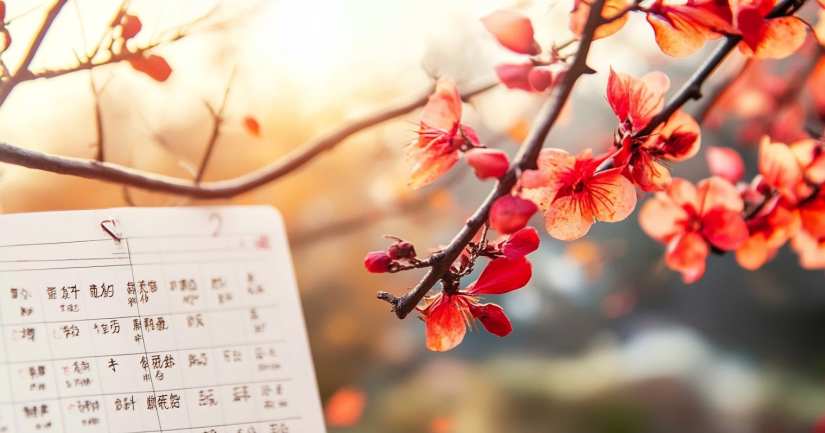
Uncover the wisdom of the Chinese Calendar Quiz, Test Your Knowledge of China’s Traditional Timekeeping System. The Chinese Calendar Quiz challenges your understanding of one of the world’s most sophisticated and ancient timekeeping systems. Unlike the Gregorian calendar, which follows a strict solar cycle, the Chinese calendar operates as a lunisolar system. It tracks both the sun’s position and the moon’s phases, influencing festivals, zodiac signs, and major life events. This quiz will test your knowledge of its structure, history, and deep cultural significance.
The Chinese calendar (农历, nónglì) follows the moon’s cycle, with months beginning on the new moon and lasting 29 to 30 days. Since a lunar year runs shorter than a solar year, an extra month (闰月, rùnyuè) appears periodically to align the calendar with the seasons. The year divides into 24 solar terms (节气, jiéqì), guiding agricultural activities and traditional celebrations. This system ensures that festivals such as Chinese New Year always fall at the correct seasonal period.
Curious about how ancient systems tie into today’s world? Expand your knowledge with the China General Knowledge Quiz or navigate through provincial details in the China Provinces Quiz.
Uncover the Answer – Start the Chinese Calendar Quiz Today
How the Chinese Calendar Works
The 12-Year Chinese Zodiac Cycle
The Chinese Zodiac (生肖, shēngxiào) plays a vital role in the calendar. Each year aligns with one of 12 animals, cycling in this order: Rat, Ox, Tiger, Rabbit, Dragon, Snake, Horse, Goat, Monkey, Rooster, Dog, and Pig. Every zodiac sign carries distinct personality traits and compatibility factors. Additionally, each year corresponds to one of the Five Elements—Wood, Fire, Earth, Metal, or Water—forming a 60-year cycle.
Festivals and Holidays in the Chinese Calendar
Traditional festivals follow the lunar calendar, marking culturally and spiritually significant moments:
- Chinese New Year (Spring Festival, 春节): The most celebrated festival, occurring on the first day of the lunar year. Fireworks, lion dances, and family gatherings define this joyous event.
- Lantern Festival (元宵节): Celebrated on the 15th day of the first lunar month, this festival features glowing lanterns and sweet rice balls (tangyuan).
- Qingming Festival (清明节): A time for honoring ancestors, where families visit graves, clean tombstones, and make offerings.
- Dragon Boat Festival (端午节): Held on the 5th day of the 5th lunar month, this event includes dragon boat races and the tradition of eating zongzi (sticky rice dumplings).
- Mid-Autumn Festival (中秋节): Celebrated on the 15th day of the 8th lunar month, families come together to admire the full moon and enjoy mooncakes.
The Role of the Chinese Calendar in Everyday Life
The Chinese calendar continues to shape daily life, guiding people in selecting auspicious dates for weddings, business openings, and house relocations. Fortune-telling traditions, such as Bazi (Eight Characters of Birth Time), rely on precise birth dates to determine destiny. Farmers use the solar terms to plan the best times for planting and harvesting. Even in modern China, the calendar influences decision-making and traditions.
How Well Do You Know the Chinese Calendar?
More than just a system for tracking time, the Chinese calendar connects history, culture, and daily life. From zodiac animals to lunar festivals, its influence remains strong. Take the Chinese Calendar Quiz to test your knowledge and discover fascinating details about this remarkable timekeeping tradition!
China Quizzes – Explore the Wonders …
